Running a small business can be a disorienting, confusing experience, regardless of how much experience you have. It’s tough to know where to turn for timely and useful information, reliable data, and time-saving software.
That’s why in this week’s post, we’re going to share some of our favorite helpful websites for small business owners. They range from government agencies such as the Small Business Administration to informative blogs like The Balance Small Business to software like Trello.
32 Helpful Websites Small Business Owners Should Bookmark
1. BizFilings
Looking to start your business for the first time? The paperwork can be intimidating, especially if you’re not familiar with the process. BizFilings can help streamline the process of getting set up.
This site helps you fill out the forms needed to create a sole proprietorship, partnership, LLC, or other type of business. It doesn’t stop there, though. It will also help you choose the right type of business.
2. SCORE
SCORE is a network of expert business mentors who work on a volunteer basis. They’ve been around since 1964, have mentored over 11 million entrepreneurs, and are a resource partner of the Small Business Administration (SBA).
According to their website, they provide the following services:
- Mentoring with experienced entrepreneurs.
- Webinars and courses on demand on subjects such as marketing and finance.
- A library of online resources which includes blogs, templates, guides, checklists, and more.
- Local events to allow entrepreneurs to meet up.
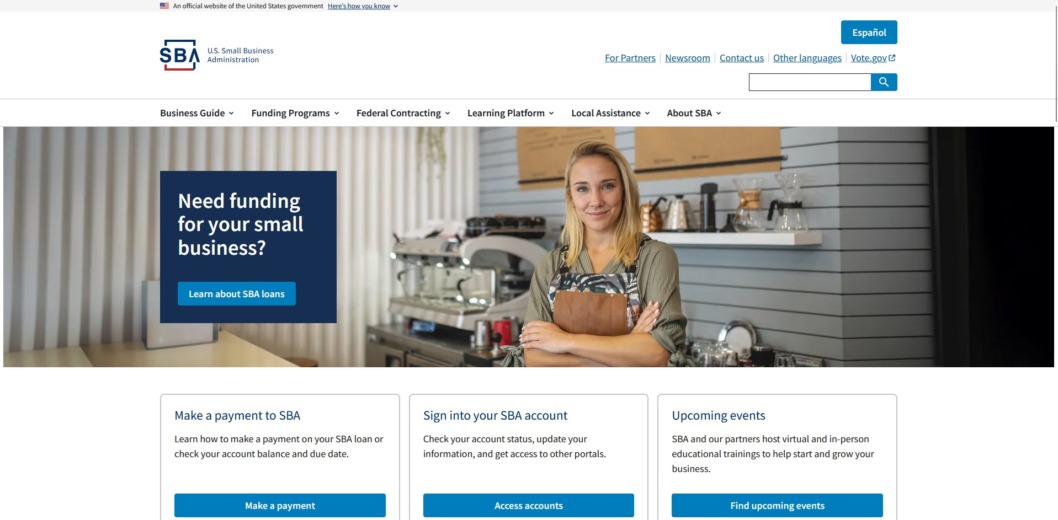
3. Small Business Administration
Created in 1953, the Small Business Administration (SBA) was established to help small businesses succeed. Like SCORE, the SBA offers a number of different services including:
- Free business counseling
- Guaranteed business loans
- Home and business disaster loans
- Access to bidding opportunities for federal contracts
4. Bureau of Labor Statistics
If you need statistics on the economy or a certain industry, one of the first places you should check is the Bureau of Labor Statistics (BLS). This government agency provides statistics on pricing, employment/unemployment, compensation, working conditions, and productivity.
You are likely familiar with some of their work, which includes, just for starters:
- Consumer Price Index
- Unemployment Rate
- Consumer Expenditure Survey
5. HubSpot
HubSpot is best known for being a customer relationship management software, akin to a free version of Salesforce. However, arguably the best thing that this company has done for small businesses is found on the Resources section of their website.
Suffice it to say, if you can think of any problem that small businesses face, HubSpot has written a very detailed article about it. Examples at the time of writing include:
- How to Write a Blog Post: A Step-by-Step Guide [+Free Blog Post Templates]
- The Social Media Content Calendar Template Every Marketer Needs [Free Template]
- How to Create a Sales Plan: Template + Examples
6. The Balance Small Business
Similar to HubSpot, the Balance Small Business has written about nearly every issue you can imagine a small business owner running into. Examples from their blog at the time of writing this post include:
- 5 Ways CEOs Can Encourage Employees to Bring Their Whole Selves to Work
- 63 Small Business Ideas to Start in 2024
- Reduce Your Business Expenses With This $30 Microsoft Office Alternative

7. Entrepreneur
Of all the major magazines and papers dedicated to business and finance, Entrepreneur is the one best tailored for small business owners and entrepreneurs. While HubSpot and The Balance Small Business are better for long-form, specific instructional guides, Entrepreneur provides more timely news information.
8. Google Trends
We mentioned this in our marketing research video.
Google Trends may be my favorite way to conduct market research. The basic idea is simple: Google keeps count of what people search, as well as when they search and where they search from. In practice, this means that you can plug in all kinds of words to see if people are interested enough to Google them.
9. Legal Zoom
If you need to create simple, routine legal documents, Legal Zoom is a good resource to remember. One of their most well-known services include business formation documents, but they also handle wills/trusts, and intellectual property filings.
10. Shake Law
Along the same lines as Legal Zoom and BizFiling, Shake Law provides simple, plain English legal agreements that can be filled out on mobile devices. According to its Wikipedia page, it contains a number of stock contract templates on subjects such as:
- Freelancing/independent contractor agreements
- Non-disclosure agreements
- Buying and selling
- Rental of goods
- Personal loans
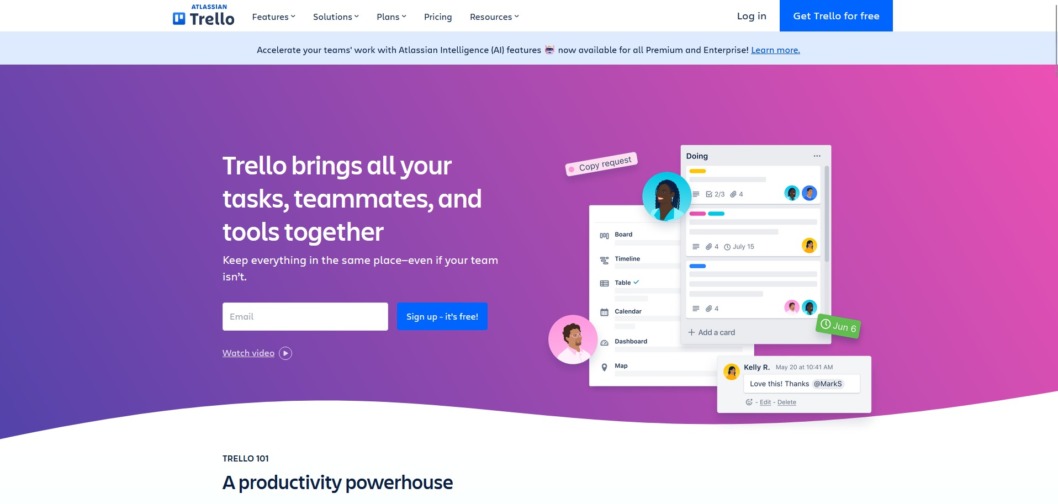
11. Trello
If you’ve never used Trello before, it can be difficult to explain exactly why it’s so useful. In short, Trello is a digital kanban board. If you’re not familiar with the concept, it’s simple: tasks are written on sticky notes and put into columns such as “to-do”, “doing”, and “done.”
Trello lets businesses easily organize tasks by allowing businesses to create an infinite number of these boards. Individual tasks can be assigned to users with due dates. You can also store notes and checklists within each task as well.
This is really just scratching the surface, too. Trello power-ups add a lot of functionality to boards. Best of all, Trello is free up to a point, though many of its most complex features require a monthly plan.
12. Salesforce
Salesforce is the most popular customer relationship management (CRM) platform. If you’re not familiar with the concept, it can be difficult to explain. Suffice it to say, a CRM can help you coordinate your marketing, sales, and service around clients or customers and their unique needs.
Relationship marketing is really difficult to do well, but it’s one of the most important tools that marketers – especially small business marketers – have at their disposal. Salesforce can help you track all the information you need to maintain productive and positive business relationships.
13. Shopify
Shopify is one of the most popular ways for small businesses to start a store. The basic idea is that Shopify makes it very easy to set up a good-looking, well-run store.
We’ve talked a lot about how to use Shopify in our other articles, listed in our eCommerce growth tips guide.
14. Wix
If you need to set up a website, but not necessarily a store, Wix is great option. One of the best parts about Wix is that you have nearly complete freedom to make any kind of website you want with their drag-and-drop editor.
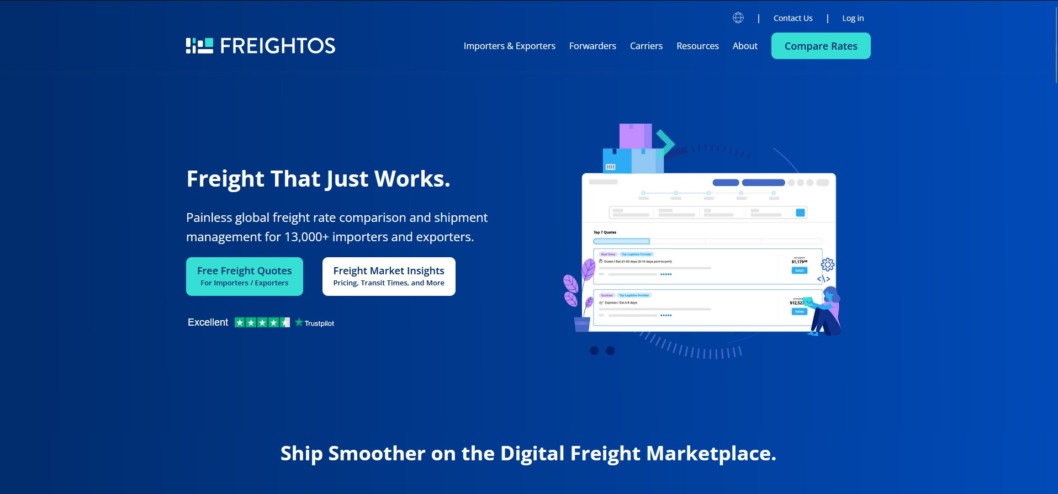
15. Freightos
We’ve talked about how to use Freightos before in a prior post. To reiterate what we said earlier:
One of the most disorienting parts of running a business is freight shipping. Oftentimes, you have to have your items manufactured in another country, or at least another part of the country. As recently as 10 years ago, getting goods from point A to Point B would have involved calling a freight broker. That’s just not the case anymore.
Freightos is a freight shipping marketplace. Basically, in the same way that Kayak helps you book flights, hotels, and rental cars, Freightos helps you book shipping by air, sea, road, and rail.
This is especially useful now, as new tariffs and trade policy shifts have made international freight pricing more volatile and harder to predict. Freightos gives small businesses transparency and flexibility to get through those fluctuations.
16. Payability
If you’re used to waiting weeks or months before getting payouts, Payability is a good website to keep in mind. Many businesses have trouble with cash flow, often having an insufficient amount of cash on hand to handle long stretches of expenses without revenue.
Payability can help smooth out cash flow problems by making your money available to you nearly immediately. They charge a modest fee of 0.5-1% for doing so, which can be worth the expense during an intense cash crunch.
This can be particularly helpful when global supply chain delays or new import tariffs increase inventory costs and strain your usual payout cycle.
17. Trustpilot
If you need to evaluate the quality of vendors you’ve never worked with before, Trustpilot is one of the best places to check. It’s no secret that online reviews are easy to game at this point, but Trustpilot does a better job of resisting that than most other sites.
Trustpilot creates a proprietary TrustScore for companies, which incentives companies to have a large number of recent reviews. Companies without a lot of reviews or with nothing but old reviews will not rank as highly as companies with recent, positive reviews.
Customers can see where reviews came from and they can also see why reviews were flagged. This gives you a chance to see if companies are trying to suppress bad reviews. On the flipside, Trustpilot gives businesses a good opportunity to plead their case and try to have bad reviews removed. Overall, it’s a remarkably fair system.
18. Slack
Slack is a simple chat room software that companies can use for free, with some paid features. It’s a good way to connect people across long distances. While the concept is nothing new, Slack is particularly popular because of its simplicity, ability to easily share files, and ability to integrate with other popular software.
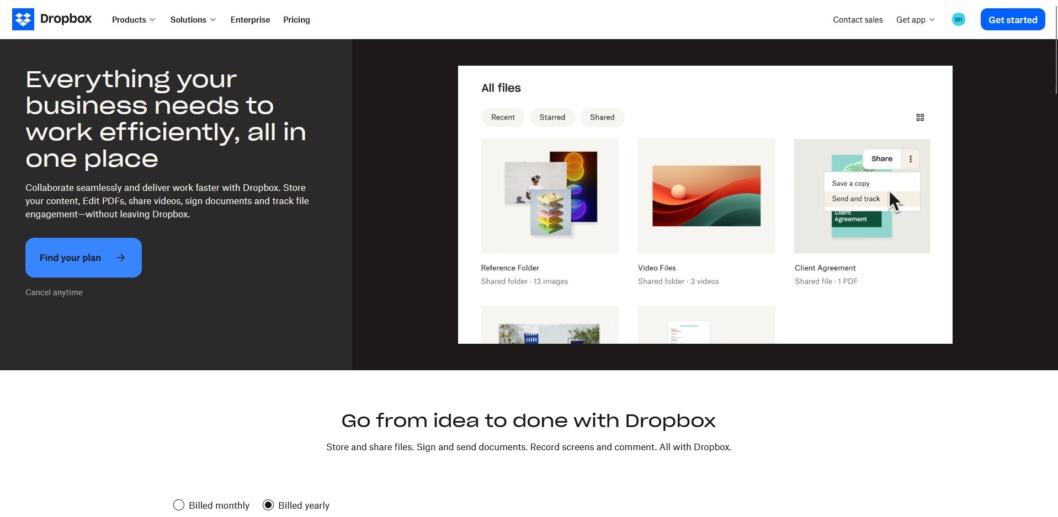
19. Dropbox
Dropbox is a cloud storage app that allows you to keep all your work documents in one place. For business, they charge $15 per user per month for 5 TB of storage space. If you need more than that, you can have unlimited space for $25 per user per month.
20. QuickBooks Online
Small business accounting can be a big pain, but QuickBooks makes it easier. Their online app allows you to track expenses, create and send invoices, manage payroll, and run reports. Most accountants will work with the system too, so it’s easy to get a professional’s help if you use QuickBooks.
21. Better Business Bureau
The Better Business Bureau (BBB) has been around for over 100 years, and for good reason. The BBB grades businesses on a scale from A+ to F based on their trustworthiness. Like Trustpilot, it can be a good way to screen vendors for the quality of their service when you don’t have much info to go on otherwise.
22. Wave
Wave is a free accounting software that helps small businesses track their money. It’s great for managing invoices, expenses, and payments all in one place. Even better, it doesn’t require a lot of accounting knowledge to use.
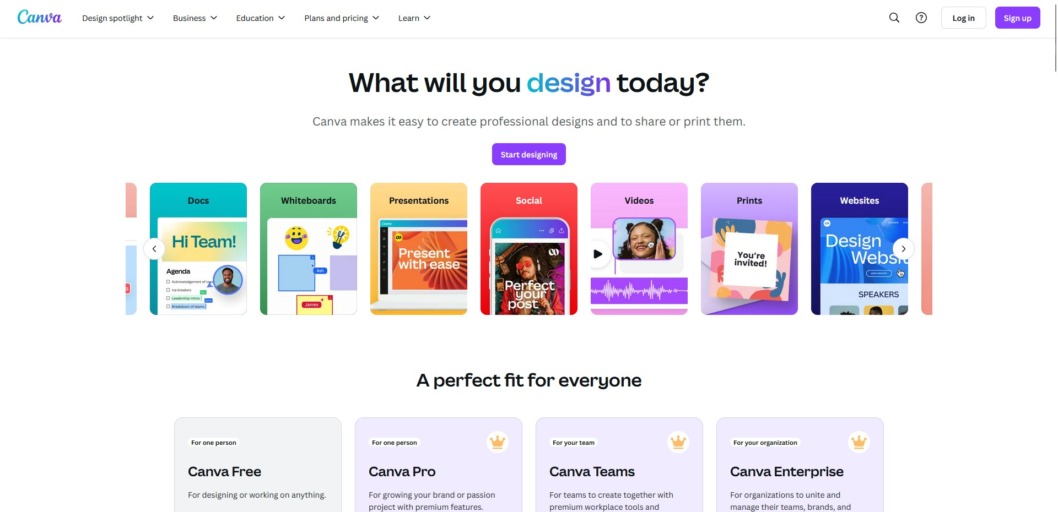
23. Canva
Canva is a design tool that makes it easy to create professional-looking graphics. You can use it to design logos, social media posts, or even brochures. It’s user-friendly, with tons of free templates to get you started.
24. Klaviyo
Klaviyo helps small businesses create email marketing campaigns. Whether you’re sending newsletters or special offers, it’s simple to build and track emails. They also offer helpful tools like automated follow-ups and audience segmentation.
25. Fiverr
Fiverr is a marketplace where you can hire freelancers for small tasks. From graphic design to writing, you can find someone to do almost anything. Best of all, you set the price and timeline, so it’s flexible for any budget.
26. Moz
Moz is an SEO tool that helps small businesses rank higher on search engines like Google. It offers keyword research, site audits, and backlink analysis. With Moz, you can improve your website’s visibility and bring in more customers.
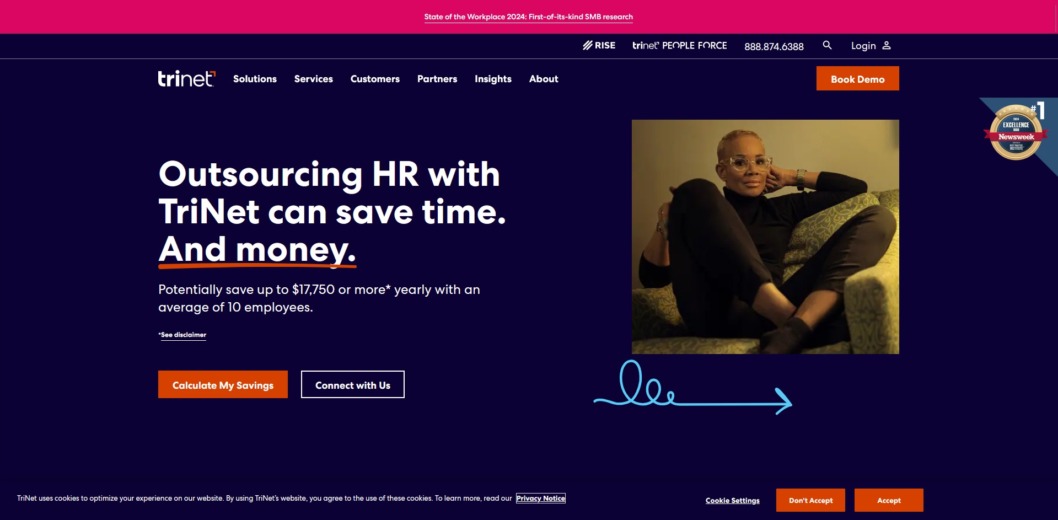
27. Trinet
Trinet is an all-in-one HR software for small businesses. It helps manage things like payroll, benefits, and employee records. If you’re looking to simplify HR, this tool can save you time and reduce paperwork.
28. Gusto
Gusto makes payroll and benefits easy for small businesses. It handles taxes, paychecks, and even direct deposits. With Gusto, you can make sure your employees get paid on time, while staying compliant with tax laws.
29. Hootsuite
Hootsuite helps you manage multiple social media accounts in one place. You can schedule posts, track performance, and respond to messages. For small businesses, it’s a time-saver that keeps your social media organized.
30. Upwork
Upwork is another platform where you can hire freelancers for all kinds of jobs. Whether you need a writer, developer, or virtual assistant, you can find them here. It’s perfect for outsourcing work without hiring full-time staff.
31. Square
Square lets small businesses accept payments easily, both online and in person. Their point-of-sale system is user-friendly and works on mobile devices. It’s a great option for shops, restaurants, or anyone needing simple payment solutions.
32. SimplyDuty
Tariffs, import duties, and taxes can eat into your margins fast. Even more so if you’re not calculating them correctly. That’s where SimplyDuty comes in.
SimplyDuty is a landed cost calculator that helps you figure out the full cost of importing goods, including customs duties, taxes, and shipping. It supports over 140 countries and integrates with Shopify, WooCommerce, and other platforms to automate duty calculation at checkout.
As recent changes in U.S. trade policy continue to affect import costs, SimplyDuty is a must-have for eCommerce businesses that source or sell internationally.
Final Thoughts
We hope that you find this list of websites helpful in your small business journey! Notice any good websites we left off? Reach out on social media and let us know – we’d love to take your feedback and make this post even better!

